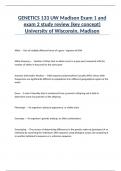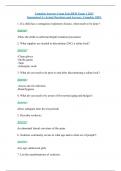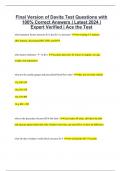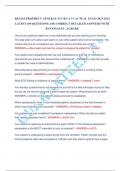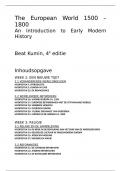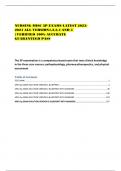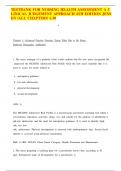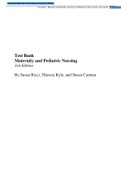Exam (elaborations)
GENETICS 133 UW Madison Exam 1 and exam 2 study review (key concept) University of Wisconsin, Madison
- Course
- GENETICS 133
- Institution
- University Of Wisconsin - Madison
GENETICS 133 UW Madison Exam 1 and exam 2 study review (key concept) University of Wisconsin, Madison
[Show more]
